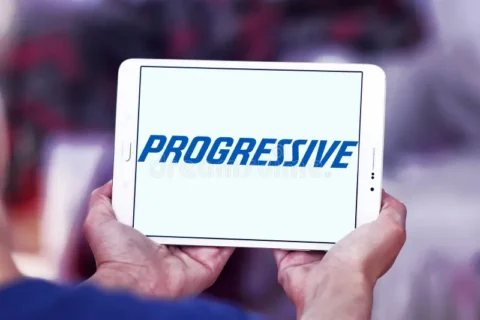In today’s dynamic and competitive marketplace, safeguarding your business against unforeseen risks is more crucial than ever. Business insurance serves as a vital shield, protecting your enterprise from financial losses that can arise from various challenges, including accidents, lawsuits, natural disasters, and more. Whether you’re a budding startup or an established corporation, understanding the nuances of business insurance is essential for ensuring long-term success and stability. This comprehensive guide delves into everything you need to know about business insurance, helping you make informed decisions to protect your business effectively.
Table of Contents
- What is Business Insurance?
- Why Do You Need Business Insurance?
- Types of Business Insurance
- General Liability Insurance
- Professional Liability Insurance
- Property Insurance
- Workers’ Compensation Insurance
- Business Interruption Insurance
- Commercial Auto Insurance
- Cyber Liability Insurance
- Directors and Officers (D&O) Insurance
- Employment Practices Liability Insurance (EPLI)
- Product Liability Insurance
- Umbrella Insurance
- Key Components of Business Insurance
- Factors Affecting Business Insurance Premiums
- How to Choose the Right Business Insurance
- Tips to Save on Business Insurance
- Common Business Insurance Myths Debunked
- How to Apply for Business Insurance
- The Future of Business Insurance
- Conclusion
- Frequently Asked Questions (FAQs)
- Meta Description
- SEO Keywords
- Internal and External Links
What is Business Insurance?
Business insurance is a collection of policies that protect a company from financial losses related to various risks. These risks can include property damage, legal liabilities, employee-related risks, and other operational threats. By transferring the financial burden of potential losses to an insurance provider, business insurance ensures that your enterprise can continue operating smoothly even in the face of adversity.
Why Do You Need Business Insurance?
Business insurance is not just a precaution—it’s a necessity for several compelling reasons:
- Financial Protection: Shields your business from significant financial losses due to unforeseen events such as accidents, natural disasters, or lawsuits.
- Legal Compliance: Certain types of insurance, like workers’ compensation and commercial auto insurance, are legally required in many jurisdictions.
- Credibility and Trust: Demonstrates to clients, partners, and investors that you are a responsible and trustworthy business.
- Risk Management: Helps identify and mitigate potential risks, fostering a safer and more secure business environment.
- Peace of Mind: Allows you to focus on growing your business without constantly worrying about potential financial setbacks.
Types of Business Insurance
Choosing the right type of business insurance depends on the nature of your business, its size, industry, and specific risks. Here are the primary types of business insurance policies to consider:
General Liability Insurance
General Liability Insurance protects your business against claims of bodily injury, property damage, and personal or advertising injury caused by your products, services, or operations. It’s essential for almost every business, providing coverage for legal fees, settlements, and medical expenses.
Key Features:
- Coverage for third-party claims
- Legal defense costs
- Medical expenses for injuries on your business premises
Professional Liability Insurance
Also known as Errors and Omissions (E&O) Insurance, Professional Liability Insurance covers claims related to negligence, errors, or omissions in the services you provide. It’s crucial for service-based businesses such as consultants, lawyers, and healthcare providers.
Key Features:
- Protection against negligence claims
- Coverage for legal defense costs
- Settlements and judgments
Property Insurance
Property Insurance safeguards your business assets, including buildings, equipment, inventory, and furniture, against risks like fire, theft, vandalism, and natural disasters. It ensures that you can repair or replace damaged property without incurring significant out-of-pocket expenses.
Key Features:
- Coverage for physical assets
- Protection against specific perils (fire, theft, etc.)
- Business interruption coverage
Workers’ Compensation Insurance
Workers’ Compensation Insurance provides financial support to employees who suffer job-related injuries or illnesses. It covers medical expenses, lost wages, and rehabilitation costs, protecting your business from lawsuits related to workplace injuries.
Key Features:
- Medical expense coverage
- Wage replacement
- Rehabilitation costs
Business Interruption Insurance
Business Interruption Insurance compensates for lost income and operating expenses if your business is temporarily halted due to a covered event, such as a natural disaster or fire. It helps you maintain financial stability during the recovery period.
Key Features:
- Coverage for lost revenue
- Payment of ongoing expenses (rent, utilities, etc.)
- Support for business restoration efforts
Commercial Auto Insurance
Commercial Auto Insurance covers vehicles used for business purposes, protecting against accidents, theft, and damage. Whether you own a fleet of delivery trucks or a single company car, this insurance ensures your business remains operational despite vehicle-related incidents.
Key Features:
- Coverage for business vehicles
- Protection against accidents and theft
- Liability coverage for vehicle-related claims
Cyber Liability Insurance
Cyber Liability Insurance protects your business against data breaches, cyber-attacks, and other digital threats. It covers costs related to data recovery, legal fees, notification expenses, and reputational damage.
Key Features:
- Data breach response costs
- Legal fees and regulatory fines
- Cyber extortion and business interruption coverage
Directors and Officers (D&O) Insurance
Directors and Officers Insurance shields your company’s leaders from personal losses if they are sued for alleged wrongful acts while managing the business. It covers legal fees, settlements, and other costs associated with such lawsuits.
Key Features:
- Protection for company executives
- Coverage for wrongful act claims
- Legal defense and settlement costs
Employment Practices Liability Insurance (EPLI)
Employment Practices Liability Insurance protects your business from claims related to employment practices, such as wrongful termination, discrimination, harassment, and retaliation. It covers legal fees, settlements, and judgments.
Key Features:
- Coverage for employment-related claims
- Protection against discrimination and harassment lawsuits
- Legal defense and settlement costs
Product Liability Insurance
Product Liability Insurance covers claims arising from the use of your products, protecting against injuries or damages caused by defects, malfunctions, or improper usage. It’s essential for manufacturers, distributors, and retailers.
Key Features:
- Coverage for product-related injuries
- Protection against defective products
- Legal defense and settlement costs
Umbrella Insurance
Umbrella Insurance provides additional liability coverage beyond the limits of your other policies. It offers an extra layer of protection against large claims and lawsuits that could otherwise deplete your business assets.
Key Features:
- Extra liability coverage
- Protection against large claims and lawsuits
- Coverage beyond primary policy limits
Key Components of Business Insurance
Understanding the fundamental components of a business insurance policy is crucial for evaluating coverage and costs effectively.
Premiums
Premiums are the regular payments you make to maintain your insurance coverage. They can be paid monthly, quarterly, semi-annually, or annually. Premium amounts are influenced by factors such as the type of coverage, business size, industry, location, and claims history.
Deductibles
A deductible is the amount you must pay out-of-pocket before your insurance coverage kicks in. Higher deductibles typically result in lower premiums, while lower deductibles increase your premium costs. Choosing the right deductible depends on your business’s financial capacity to handle potential losses.
Coverage Limits
Coverage Limits specify the maximum amount an insurance company will pay for a covered claim. There are typically two types of limits:
- Per-Occurrence Limit: The maximum payout for a single incident.
- Aggregate Limit: The total payout for all claims during the policy period.
Exclusions
Exclusions are specific conditions or circumstances that are not covered by your insurance policy. It’s essential to understand these to avoid surprises during a claim. Common exclusions include intentional acts, certain natural disasters, and specific types of liability.
Factors Affecting Business Insurance Premiums
Several factors influence the cost of business insurance premiums. Understanding these can help you manage and potentially lower your insurance costs.
Industry Type
The nature of your industry significantly impacts your insurance premiums. High-risk industries such as construction, manufacturing, and healthcare typically face higher premiums due to increased liability and potential for claims.
Business Size
Larger businesses with more employees, higher revenues, and more extensive operations usually pay higher premiums compared to smaller enterprises. The scale of your business operations increases exposure to various risks, necessitating higher coverage.
Location
Your business location affects insurance costs based on local regulations, crime rates, natural disaster risks, and the availability of insurance providers. For example, businesses in urban areas with higher crime rates may face higher premiums compared to those in rural settings.
Claims History
A history of frequent or large insurance claims can lead to higher premiums. Insurers view a poor claims history as an indicator of higher risk, resulting in increased costs for coverage.
Coverage Amount and Types
The extent and variety of coverage you choose directly influence your premiums. Comprehensive policies with higher coverage limits and additional riders will cost more than basic policies with minimal coverage.
How to Choose the Right Business Insurance
Selecting the appropriate business insurance involves careful evaluation of your business’s specific needs, understanding policy options, and comparing available coverage and costs. Follow these steps to make an informed decision:
Assess Your Risks
Identify the potential risks your business may face, including liability, property damage, employee-related risks, and industry-specific threats. Conducting a thorough risk assessment helps determine the types of insurance coverage you need.
Understand Policy Options
Familiarize yourself with different insurance policies and their coverage. Understanding the nuances of each type of insurance allows you to choose policies that align with your business’s risk profile and financial goals.
Compare Quotes
Obtain quotes from multiple insurance providers to compare coverage options, premiums, deductibles, and policy terms. Use online comparison tools or consult with insurance brokers to streamline this process.
Check Insurer’s Reputation
Evaluate the reputation and financial stability of insurance companies. Look for reviews, ratings from agencies like A.M. Best or Moody’s, and feedback from other businesses to ensure you choose a reliable insurer.
Consider Bundling Policies
Many insurance providers offer discounts for bundling multiple policies, such as general liability, property, and commercial auto insurance. Bundling can simplify management and reduce overall insurance costs.
Tips to Save on Business Insurance
Maximizing savings on business insurance while maintaining adequate coverage is achievable with strategic planning. Here are effective ways to reduce your insurance premiums:
Shop Around
Don’t settle for the first quote you receive. Compare offers from multiple insurers to find the best rates and coverage options that fit your budget and needs.
Bundle Policies
Bundling different types of insurance policies with the same provider can lead to significant discounts. For example, combining general liability and property insurance often results in lower premiums.
Improve Business Practices
Implementing safety protocols, employee training programs, and risk management strategies can reduce the likelihood of claims, leading to lower insurance costs over time.
Increase Deductibles
Opting for higher deductibles can lower your premium costs. However, ensure your business can afford the higher out-of-pocket expenses in case of a claim.
Maintain Good Credit
Insurers often consider your business’s credit history when determining premiums. Maintaining a good credit score can lead to lower insurance costs.
Common Business Insurance Myths Debunked
Misconceptions about business insurance can lead to inadequate coverage or overspending. Let’s address some common myths:
Myth 1: My Small Business Doesn’t Need Insurance
Fact: Regardless of size, all businesses face risks that can lead to financial losses. Small businesses often have fewer resources to absorb these losses, making insurance essential for protection and continuity.
Myth 2: General Liability Insurance Covers Everything
Fact: While general liability insurance provides broad protection, it doesn’t cover all types of risks. Additional coverage, such as professional liability or cyber insurance, may be necessary depending on your business activities.
Myth 3: Insurance Is Too Expensive for Startups
Fact: Business insurance costs vary based on factors like industry, size, and coverage needs. Startups can find affordable options by carefully assessing their risks and choosing essential coverage initially, with the ability to expand coverage as the business grows.
Myth 4: Once You Have Insurance, You Don’t Need to Manage Risks
Fact: Insurance is a safety net, not a substitute for risk management. Implementing proactive measures to reduce risks can lead to lower premiums and fewer claims.
Myth 5: Insurance Policies Are One-Size-Fits-All
Fact: Insurance policies can be customized to fit the unique needs of your business. Tailoring coverage ensures you have adequate protection without paying for unnecessary extras.
How to Apply for Business Insurance
Applying for business insurance involves several steps to ensure you receive the appropriate coverage tailored to your needs.
Step-by-Step Application Process
- Determine Your Coverage Needs: Assess your business’s specific risks and financial obligations to identify the types and amounts of coverage required.
- Choose the Right Policy Types: Select the insurance policies that best address your identified risks, such as general liability, property, and workers’ compensation.
- Gather Necessary Information: Prepare essential details about your business, including financial statements, number of employees, property details, and operational practices.
- Obtain Quotes: Request quotes from multiple insurance providers to compare coverage options, premiums, and policy terms.
- Review and Compare Policies: Carefully examine the terms, conditions, coverage limits, and exclusions of each policy to determine the best fit for your business.
- Complete the Application: Fill out the insurer’s application form accurately, providing all required information.
- Undergo a Risk Assessment: Some insurers may conduct a risk assessment or inspection of your business premises to evaluate potential risks.
- Finalize the Policy: Once approved, review the policy documents, make the initial premium payment, and receive your insurance coverage.
Tips for a Smooth Application
- Be Honest: Provide accurate and truthful information to avoid policy denial or complications during claims.
- Organize Documentation: Keep all necessary documents readily available to expedite the application process.
- Understand the Terms: Ensure you comprehend all aspects of the policy, including coverage limits, exclusions, and policy riders.
- Seek Professional Advice: Consult with an insurance broker or financial advisor to help navigate the application process and choose the best coverage options.
The Future of Business Insurance
The business insurance landscape is continuously evolving, driven by technological advancements and changing business dynamics. Here are some trends shaping the future of business insurance:
Technology Integration
Digital Platforms: Insurers are leveraging digital tools for policy management, claims processing, and customer service, enhancing efficiency and customer experience.
Artificial Intelligence (AI): AI is being used for underwriting, fraud detection, and personalized policy recommendations, improving accuracy and reducing operational costs.
Customized Policies
Personalized Coverage: Insurers are offering more customizable policies tailored to the specific needs and risk profiles of individual businesses, allowing for greater flexibility and relevance.
Usage-Based Insurance: Similar to auto insurance, usage-based business insurance assesses actual usage and risk factors to determine premiums, promoting fair pricing.
Data Security
Cybersecurity Focus: As cyber threats become more sophisticated, insurers are expanding their cyber liability coverage to protect businesses from data breaches, ransomware attacks, and other digital threats.
Data-Driven Risk Management: Advanced data analytics enable insurers to assess risks more accurately and offer proactive risk management solutions to businesses.
Conclusion
Business insurance is an indispensable component of a robust risk management strategy, providing essential protection against a myriad of potential threats. By understanding the different types of business insurance, key policy components, and factors affecting premiums, you can make informed decisions that safeguard your enterprise’s financial health and operational continuity. Whether you’re a startup navigating early-stage risks or an established business seeking comprehensive coverage, selecting the right insurance policies tailored to your unique needs is crucial for long-term success and resilience.
Stay proactive in evaluating and updating your insurance coverage as your business evolves, ensuring that you remain protected against emerging risks and changing market dynamics. With the right business insurance in place, you can focus on growth, innovation, and achieving your business goals with confidence and peace of mind.
Frequently Asked Questions (FAQs)
1. What is the most essential business insurance policy for small businesses?
Answer: While all insurance policies are important, General Liability Insurance is often considered the most essential for small businesses. It provides fundamental protection against third-party claims of bodily injury, property damage, and personal injury.
2. How much business insurance do I need?
Answer: The amount of business insurance needed varies based on factors such as industry, business size, location, and specific risks. It’s crucial to assess your business’s unique needs and consult with an insurance professional to determine appropriate coverage levels.
3. Can I get business insurance if I have a bad credit score?
Answer: Yes, you can still obtain business insurance with a bad credit score, but it may result in higher premiums. Insurers use credit scores as one of several factors to assess risk, so improving your credit score can help lower your insurance costs over time.
4. Do I need separate insurance for my home-based business?
Answer: Yes, Homeowners Insurance typically does not cover business-related risks. You may need a Home-Based Business Insurance Policy or a Commercial General Liability Insurance policy to protect your business assets and operations.
5. What should I do if my business insurance claim is denied?
Answer: If your business insurance claim is denied, you should:
- Review the Denial Letter: Understand the reasons for denial.
- Contact Your Insurer: Seek clarification and provide any additional information if necessary.
- File an Appeal: Submit a formal appeal with supporting documentation.
- Consult a Professional: Consider consulting with an insurance attorney or a claims advocate for assistance.





